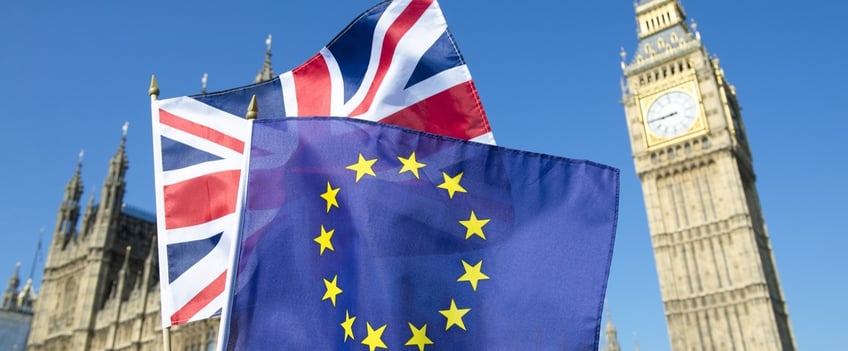 This week we feature guest author Matthew Springate, Principal for Tradewin's practice in Europe. Since 1997, Tradewin has been providing expert import and export advice to clients all over the world. Combined, their skilled team of Customs brokers, lawyers, accountants, and other professionals possess more than 400 years of experience. Together, they have helped thousands of clients save more than $50 million in duties, guiding them through the ever-changing and complex arena of international regulations as effortlessly as possible. Tradewin is a wholly-owned subsidiary of Expeditors.
This week we feature guest author Matthew Springate, Principal for Tradewin's practice in Europe. Since 1997, Tradewin has been providing expert import and export advice to clients all over the world. Combined, their skilled team of Customs brokers, lawyers, accountants, and other professionals possess more than 400 years of experience. Together, they have helped thousands of clients save more than $50 million in duties, guiding them through the ever-changing and complex arena of international regulations as effortlessly as possible. Tradewin is a wholly-owned subsidiary of Expeditors.
A change in Prime Minister in the UK on July 24th has renewed focus on Brexit and its impacts across the Eurozone. Currently, the UK is set to leave the European Union (EU) on October 31st, with or without a deal. Given that the current withdrawal agreement between the EU and UK has been voted down three times by the UK parliament, and due to the renewed political prioritization of no-deal planning by the current government, trade compliance professionals are building their Brexit plans with an assumption of no deal.
Below are Tradewin’s top 5 recommendations of focus areas for trade compliance practitioners in the event of a no-deal Brexit:
1. HS Classification
Assuming a customs declaration is required between the UK and EU, HS Classifications will be required for import and export declarations. This will be true in the UK as well as the EU-27 who trade with the UK. Companies trading and responsible for potential future UK-EU declarations must assign HS Classifications to their products. The UK has stated that they will mirror the EU tariff structure in the short term.
2. Customs Valuation
Companies trading intercompany, particularly in situations where stock is transferred without a change of ownership, will need to review and define a customs value for these products moving between the UK and EU so that the correct value can be declared at the time of importation. As a reminder, these values must be based on EU customs valuation rules and cannot be assigned arbitrarily.
3. Free Trade Agreement Use
The UK leverages free trade agreements (FTA) only as a member of the EU. Outside of the EU, the UK will need to renegotiate these trade agreements. Some continuation agreements have been signed by the UK and current EU-FTA members. However, companies also need to consider the impact of direct ship rules on their ability to leverage FTAs, as well as ensuring that rules of origin are still met for EU manufactured and exported products when the UK is no longer considered to be an ‘originating’ country.
4. Special Procedures and Authorized Economic Operator (AEO)
Interconnected EU supply chains that will require customs declarations in the future may experience double-duty risk when declarations are required between the UK and EU. Leveraging special procedures like Inward Processing Relief, Outward Processing Relief, and Customs Warehousing are great ways to limit that potential duty exposure. For each program, advance authorization from EU member states is required, and applicants are required to either be AEO licensed or meet the AEO standard in order to progress.
5. Transitional Simplified Procedures
HMRC has announced open registration for Transitional Simplified Procedures. This is a system whereby UK businesses importing from the EU can register and release goods at the border through a simplified declaration, with a full customs declaration following after the goods have been released. This is designed to speed up customs clearance at the border. Duty and VAT payments are also deferred and can be made in a single payment for a given month’s activity. Traders importing from the EU and not importing controlled goods or already using a special procedure should consider this.
Tradewin is here to help. Should you require assistance in any of the above mentioned areas, or wish to speak to one of our consultants regarding your supply chain and potential Brexit risks, please feel free to reach out.





